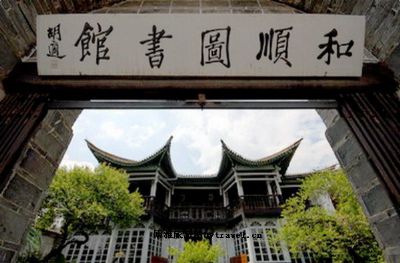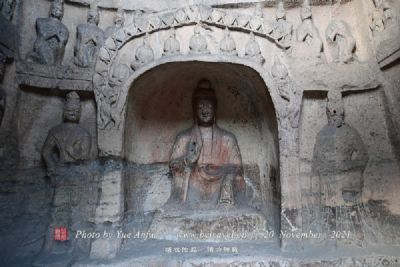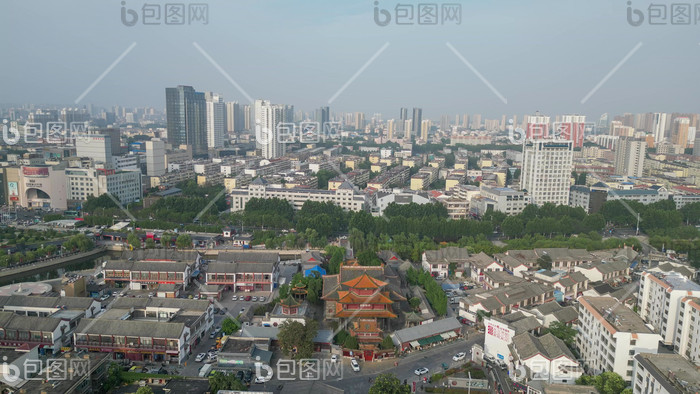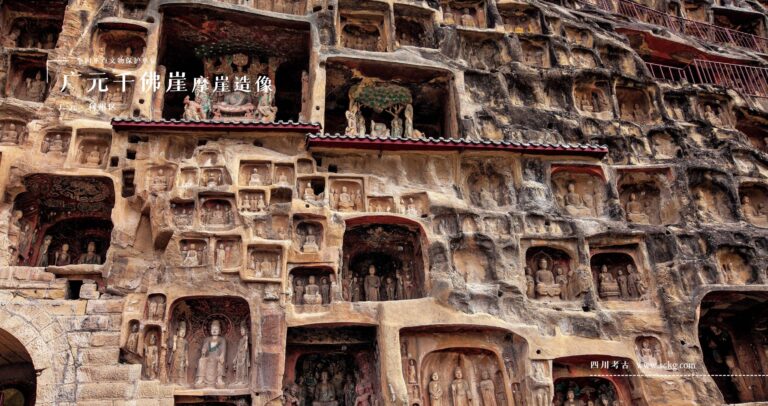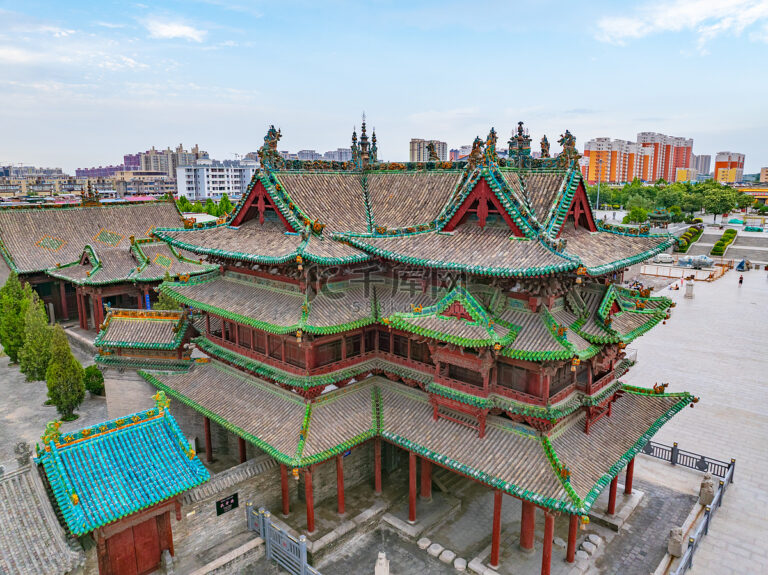Exploring Pingliang Niujiaogou Yizhi: Nature, Culture, and Adventure Await
An Essential Guide to Visiting Pingliang Niujiaogou Yizhi
In This Guide
- An Essential Guide to Visiting Pingliang Niujiaogou Yizhi
- The Rich History of Pingliang Niujiaogou Yizhi
- Main Highlights: What to See at Pingliang Niujiaogou Yizhi
- Planning Your Visit: A Practical Guide
- Tickets, Hours, and Booking
- How to Get There
- Local Cuisine and Accommodation
- Frequently Asked Questions
- Final Thoughts on Your Trip
Nestled in the serene landscapes of Gansu Province, Pingliang Niujiaogou Yizhi (牛角沟遗址), or the Niujiaogou Archaeological Site, is a treasure trove for history enthusiasts and curious travelers alike. This remarkable site, which dates back approximately 50,000 years, is renowned for its significant discovery of ancient human fossils, notably those of the so-called “Jingchuan Man.” Designated as a National Key Cultural Relic Protection Unit in 2013, the site provides a fascinating glimpse into early human life and their environmental interactions in this picturesque region.
The Niujiaogou site is more than just an archaeological dig; it is a beacon of cultural heritage that encapsulates the rich tapestry of human history in China. Surrounding the site, the lush greenery and tranquil waters create a perfect backdrop, inviting visitors to explore not only the remnants of our ancient ancestors but also the vibrant local culture that has flourished in this area.
As you wander through the serene landscapes of Pingliang, prepare to be captivated by the harmonious blend of history and nature. Engage with the local community, who, inspired by their heritage, have transformed the area into a burgeoning rural tourism hotspot. From charming homestays to delightful culinary experiences, this destination promises an enriching journey that goes beyond mere sightseeing—it’s an exploration of human resilience and cultural continuity.
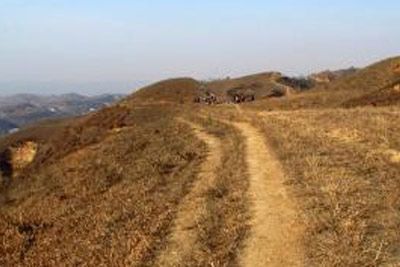
Pingliang Niujiaogou Yizhi.
Whether you’re an avid archaeologist, a cultural explorer, or simply seeking tranquility in nature, Niujiaogou offers an unforgettable experience, inviting you to connect with the past while enjoying the beauty of the present. Come and discover why this hidden gem in Gansu is rapidly becoming a must-visit destination for travelers from around the globe.
The Rich History of Pingliang Niujiaogou Yizhi
The Pingliang Niujiaogou Yizhi, or Niujiaogou Site, is a significant archaeological site located in the Jingchuan area of Gansu Province, China. This site has garnered attention for its remarkable contributions to our understanding of early human life in the region.
Dating back approximately 50,000 years, the Niujiaogou Site is primarily celebrated for the discovery of ancient human remains, specifically a skull fossil that has been classified as belonging to a member of the species known as “Jingchuan Man.” This fossil, unearthed in the mid-1970s, marked a pivotal moment in Chinese archaeology, providing critical insights into the morphology and lifestyle of early humans in East Asia. The identification of this site as a key location for understanding human evolution in China led to its designation as a National Key Cultural Relics Protection Unit in 2013.
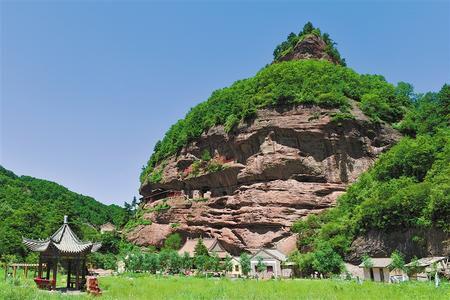
Pingliang Niujiaogou Yizhi.
The Niujiaogou Site is characterized by its rich stratigraphy, which contains layers of sediment that date back to the Paleolithic era. These layers have yielded not only human fossils but also a variety of stone tools and artifacts that illustrate the technological capabilities of early inhabitants. The tools found at the site, primarily made of flint, indicate that the people of this era engaged in hunting and gathering, relying on their skills in tool-making for survival.
As the years progressed, the importance of the Niujiaogou Site has extended beyond purely academic interest; it has become a focal point for cultural tourism in the region. Local efforts to develop surrounding areas into tourist attractions have resulted in the establishment of visitor centers and educational facilities that showcase the site’s historical significance. The site now features exhibitions that highlight the findings from archaeological excavations, including detailed displays of artifacts and contextual information about the lifestyle of early humans.
Moreover, community initiatives have intertwined the preservation of the site with local economic development. The surrounding villages, such as Bai Jia Village, have embraced agritourism, offering visitors a chance to engage with local culture while learning about the archaeological heritage of the area. This synergy between history and modern livelihood illustrates a holistic approach to heritage conservation and community development.
In summary, the Niujiaogou Site is not only a treasure trove of prehistoric human history but also a vibrant part of the current cultural landscape in Pingliang. Its history is a testament to the enduring legacy of early human life in China and the continuing efforts to preserve and promote this invaluable heritage for future generations.
Main Highlights: What to See at Pingliang Niujiaogou Yizhi
Nestled in the picturesque Jingchuan County of Gansu Province, the Pingliang Niujiaogou Yizhi (牛角沟遗址) is a remarkable archaeological site that offers a glimpse into the distant past, specifically around 50,000 years ago. This site is significant for housing the fossilized remains of early hominids, known as “Jingchuan Man,” which were discovered in the 1970s and have been pivotal in understanding early human evolution in China.
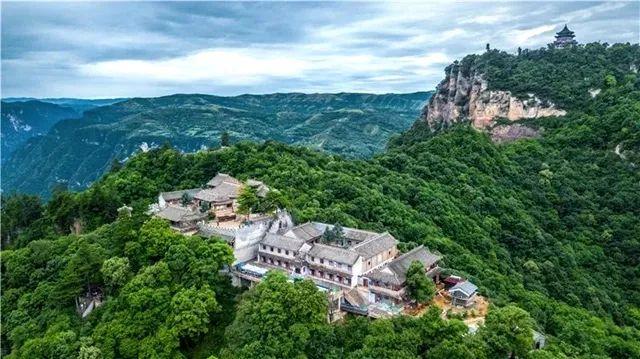
Pingliang Niujiaogou Yizhi.
A Journey Through Time
Visiting Niujiaogou is akin to traversing the corridors of time. The site has been designated as a National Key Cultural Relic Protection Unit, reflecting its importance in the study of prehistoric human life. The area is marked by stunning natural scenery, with lush greenery and the flowing Jing River, creating a serene backdrop that enhances the experience of exploring ancient history.
The Archaeological Significance
The discovery of the “Jingchuan Man” skull, along with various tools and artifacts, underscores the site’s role as a significant archaeological landmark. This evidence points towards early human activity in the region, making it a crucial site for scholars and enthusiasts of anthropology and archaeology alike. The site provides insight into the lifestyle, environment, and adaptations of early humans in this region of China.
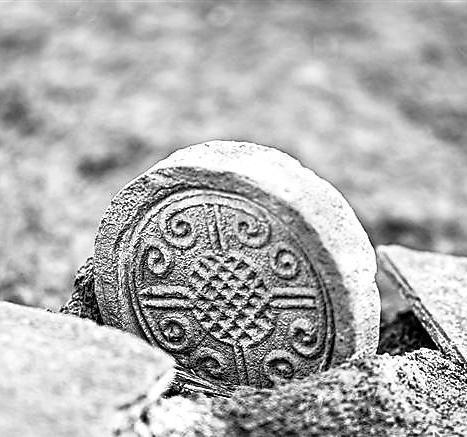
Pingliang Niujiaogou Yizhi.
Cultural and Educational Hub
In addition to its archaeological significance, Niujiaogou has been developed as a cultural and educational hub. The site features an exhibition hall where visitors can learn about the history of the findings and the broader context of prehistoric human life. Interactive displays and informative panels engage visitors, making it an excellent place for families and educational groups.
Ecotourism and Local Development
The Niujiaogou area is part of a broader initiative to promote ecotourism in Jingchuan County. This effort not only preserves the archaeological site but also supports local communities by providing opportunities for sustainable tourism. Visitors can explore the nearby villages, sample local delicacies, and engage with the community, fostering an appreciation for both the history and the culture of the region.
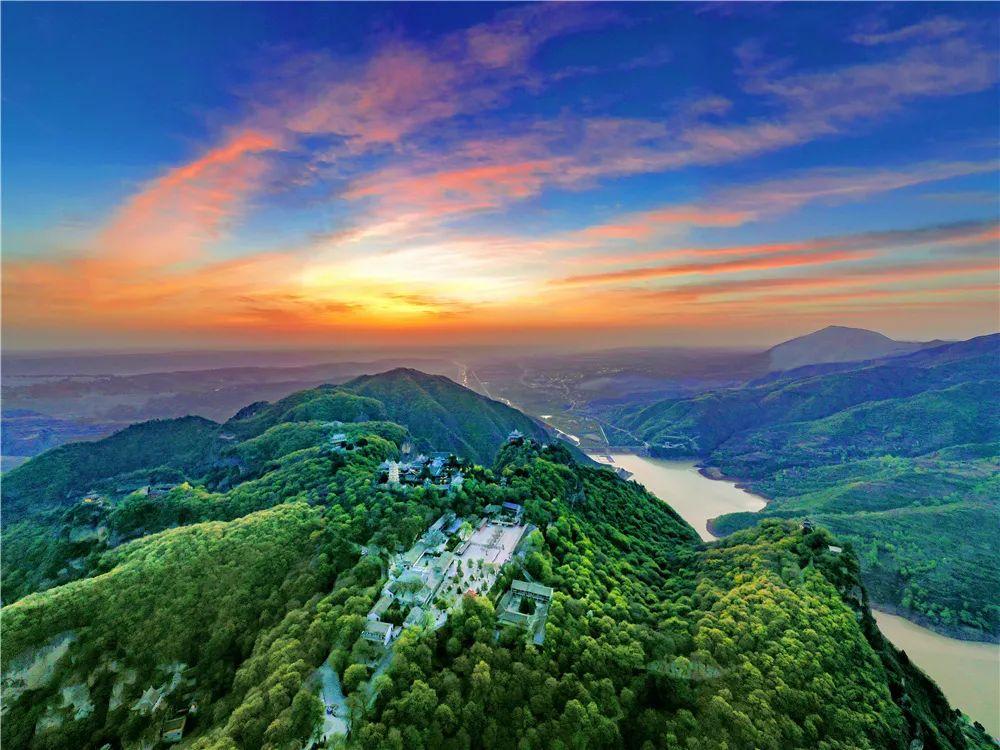
Pingliang Niujiaogou Yizhi.
An Ideal Destination for All
Whether you are a history buff, nature lover, or simply seeking a peaceful retreat, Niujiaogou offers a unique blend of natural beauty and cultural richness. Its combination of stunning landscapes, fascinating history, and community engagement makes it a must-visit destination in Gansu. As rural tourism continues to grow in popularity in China, Niujiaogou stands out as a beacon of both environmental and historical significance, inviting visitors to explore the depths of human history amidst breathtaking scenery.
Planning Your Visit: A Practical Guide
Practical Guide to Visiting Pingliang Niujiaogou Yizhi
When planning a visit to Pingliang Niujiaogou Yizhi (牛角沟遗址), it’s essential to be well-prepared to make the most of your experience in this intriguing archaeological site. Here’s a comprehensive guide to help you navigate your journey effectively.
Location and Access
Pingliang Niujiaogou Yizhi is located in the picturesque Jingchuan County of Gansu Province, China. The site is approximately 15 kilometers from the urban center of Pingliang. Visitors can reach the site by car or local transportation. If you’re traveling from major cities, consider taking a train or bus to Pingliang and then hiring a local taxi or rideshare for the final leg of your journey.
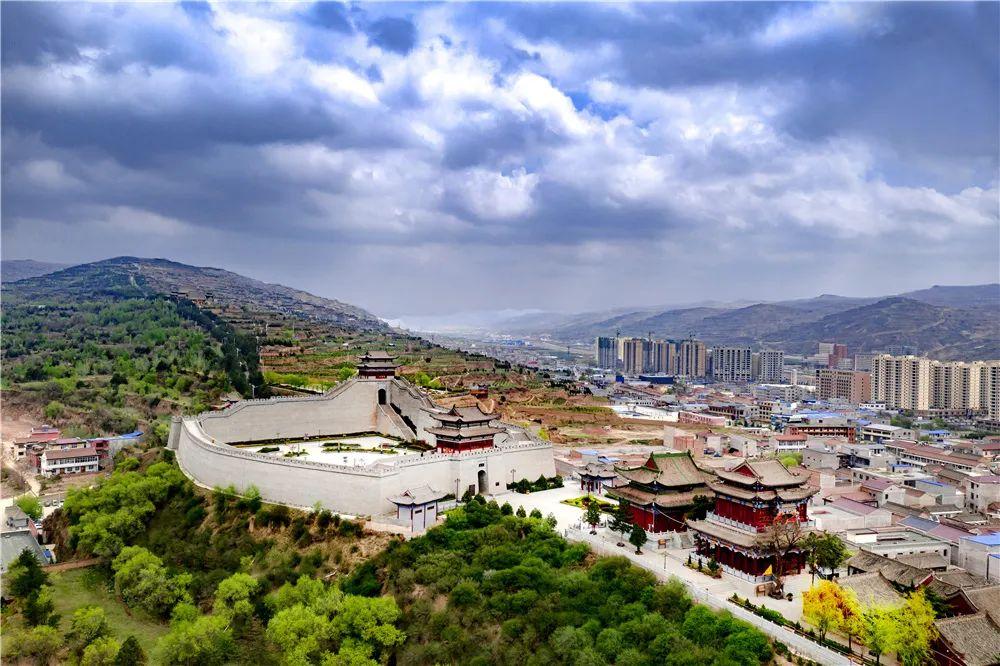
Pingliang Niujiaogou Yizhi.
Best Time to Visit
The ideal time to visit Niujiaogou Yizhi is during spring (April to June) and autumn (September to November). During these months, the weather is mild and comfortable, allowing for an enjoyable exploration of the site. Summer can be hot, while winter might bring colder temperatures, which could impact your experience.
Opening Hours
Niujiaogou Yizhi is open to visitors year-round, with typical hours from 8:30 AM to 5:30 PM. It’s advisable to check the site’s official webpage or local tourist information for any seasonal changes in operating hours.
Entry Fees
As a nationally recognized key cultural relic protection unit, there is a nominal entrance fee. The ticket prices may vary, so it’s best to confirm current rates upon arrival. Discounts may be available for students and seniors, so be sure to bring identification if applicable.
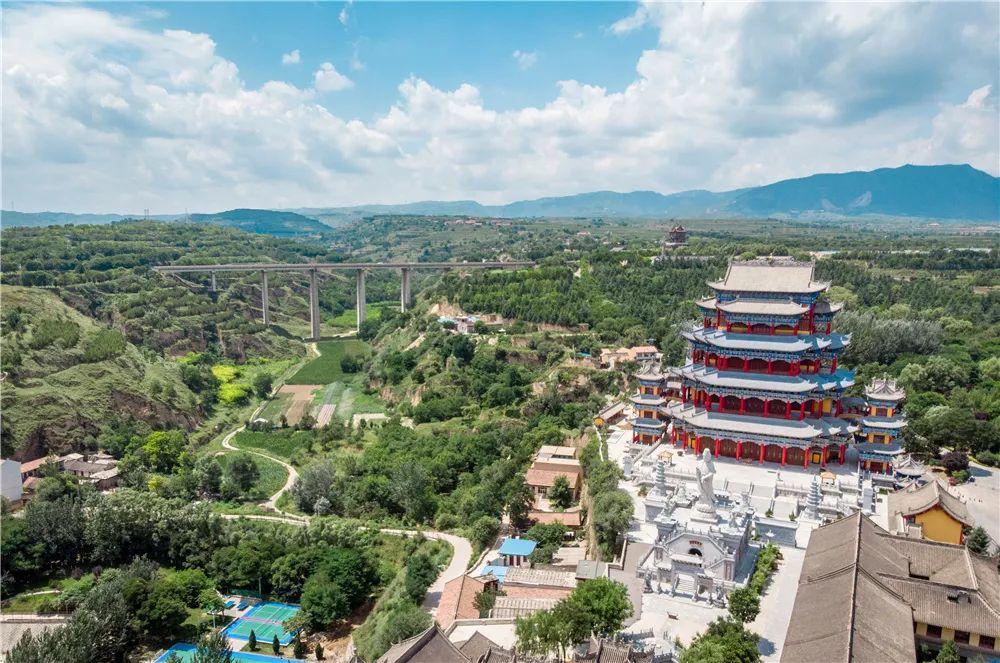
Pingliang Niujiaogou Yizhi.
Site Highlights
- Archaeological Significance: The site is renowned for its discovery of the “Jingchuan Man” skull, dating back approximately 50,000 years. This significant find offers insights into early human life in the region.
- Exhibition Hall: The on-site exhibition hall displays artifacts found at the site, including tools and remnants that exemplify the lifestyle of ancient inhabitants. Guided tours are often available for a more in-depth understanding of the exhibits.
- Natural Beauty: The surrounding landscape features lush greenery and serene waters, ideal for leisurely walks. Don’t forget your camera, as the natural scenery is as captivating as the archaeological features.
Nearby Attractions
While visiting Niujiaogou Yizhi, consider exploring other local attractions:
– Bai Jia Village: Famous for its picturesque water streets and local cuisine, Bai Jia Village is just a short drive away. Enjoy authentic Gansu dishes and engage with local artisans.
– Jingchuan’s Scenic Areas: The region is rich in natural beauty, with ample opportunities for hiking and outdoor activities. Look out for local parks and natural reserves.
Local Cuisine
Don’t miss out on trying local delicacies such as:
– Pingliang Steamed Bread: Known for its unique texture and flavor, this traditional dish is a must-try.
– Cold Noodles: A refreshing dish perfect for warm days, often served with a variety of sauces.
– Local Handicrafts: Browse through local markets for handmade crafts and souvenirs that reflect the rich cultural heritage of the area.
Tips for a Great Visit
- Dress Comfortably: Wear comfortable shoes suitable for walking and exploring uneven terrain.
- Bring Water and Snacks: While there may be food vendors nearby, it’s wise to carry water and light snacks, especially if you plan to spend a lot of time exploring.
- Respect the Site: As a historical and cultural site, it’s important to follow all posted guidelines and regulations to preserve its integrity for future generations.
Conclusion
Visiting Pingliang Niujiaogou Yizhi offers a unique opportunity to delve into ancient human history while enjoying the natural beauty of Gansu Province. With this guide in hand, you’re ready to embark on a fascinating journey into the past, enriched by the culture and charm of the region. Enjoy your visit!
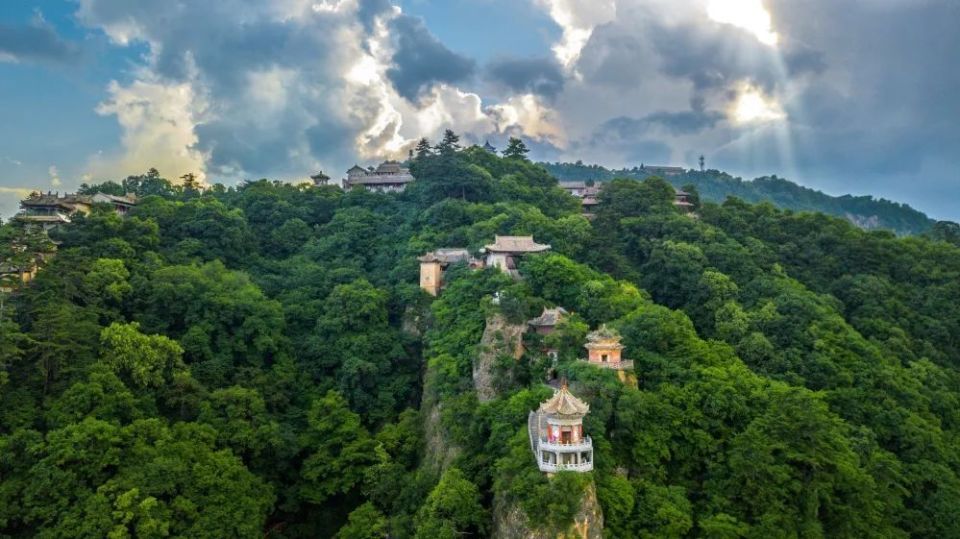
Pingliang Niujiaogou Yizhi.
Tickets, Hours, and Booking
When planning your visit to the Pingliang Niujiaogou Yizhi (牛角沟遗址), it’s essential to be informed about ticketing options to ensure a smooth experience. The site, recognized as a national key cultural relic protection unit, attracts visitors eager to explore its rich archaeological significance, particularly the fossil discoveries associated with the ancient human remains known as “Jingchuan Man,” dating back approximately 50,000 years.
Ticket Information
-
General Admission: Tickets to the Niujiaogou site are typically priced at CNY 30 per person. This fee grants access to the main excavation area and exhibition hall, where you can gain insights into the site’s history and significance.
-
Discounts:
- Students and senior citizens (above 65 years) are eligible for a 50% discount on admission. Make sure to bring valid identification to avail of this offer.
-
Children under the age of six can enter for free.
-
Group Rates: For organized groups of over 20 people, it is advisable to contact the site administration in advance. Group tickets can provide additional discounts and streamline the entry process.
-
Opening Hours: The site is open year-round, with operating hours generally from 8:00 AM to 6:00 PM. However, it’s recommended to check for any seasonal changes in timings or special events that may affect access.
-
Payment Options: Tickets can usually be purchased on-site, but some visitors may also find online ticketing options available through local tourism websites. It’s advisable to carry cash, as some vendors may not accept card payments.
Visiting the Niujiaogou site not only offers a glimpse into ancient human history but also provides a serene environment for leisurely exploration. Be sure to allocate enough time to fully appreciate the exhibits and the beautiful surroundings.
How to Get There
Getting to Pingliang Niujiaogou Yizhi (牛角沟遗址) involves a combination of modern transport options and local travel methods. This site, renowned for its archaeological significance, especially the discovery of ancient human fossils, is located in the picturesque Jingchuan County of Gansu Province. Here’s how to navigate your way to this fascinating destination.
By Air
The nearest major airport to Niujiaogou Yizhi is the Pingliang Airport (PGL), which is approximately 75 kilometers away. While it primarily serves domestic flights, it connects to several major cities in China. Upon landing, you can hire a taxi or arrange for a private transfer to reach your final destination.
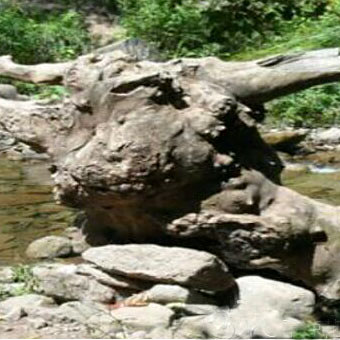
Pingliang Niujiaogou Yizhi.
By Train
Pingliang is well-connected by rail, making it an excellent option for travelers coming from larger cities. The Pingliang Railway Station accommodates both high-speed and regular trains. If you are traveling from cities like Lanzhou or Xi’an, you can easily catch a train to Pingliang. Once you arrive at the station, local taxis and buses are available to transport you to Jingchuan County.
By Bus
For those preferring road travel, long-distance buses operate from various cities directly to Pingliang. The Pingliang Long-Distance Bus Station offers frequent services, where you can purchase tickets on-site or book in advance online. The bus ride is a scenic experience, allowing you to enjoy the beautiful landscapes of Gansu Province.
Local Transport
Once in Jingchuan County, reaching Niujiaogou Yizhi can be done via local transportation options:
-
Taxis: Taxis are readily available and provide a convenient means to reach the site directly. Be sure to confirm the fare before starting your journey.
-
Ride-Sharing Services: Apps like Didi Chuxing are operational in the area, offering an alternative to traditional taxis.
-
Public Buses: For the budget-conscious, local buses may operate routes to the vicinity of Niujiaogou Yizhi. However, schedules can be sporadic, so checking in advance is advisable.
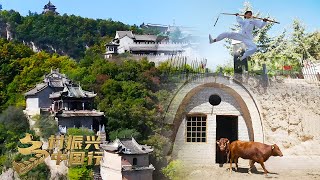
Pingliang Niujiaogou Yizhi.
Accessibility
The site itself is designed to accommodate visitors, with pathways that allow easy access to the main attractions. Adequate signage and facilities are available to enhance your experience while exploring this significant archaeological site.
Tips for Travelers
- Timing: It is best to visit during the spring or autumn months when the weather is mild and pleasant.
- Plan Ahead: As rural transport options may have limited schedules, it’s wise to plan your visits and return trips in advance.
- Local Cuisine: While in the area, don’t miss out on tasting local dishes, including the famous Jingchuan noodles and various traditional snacks available in nearby villages.
By following this guide, you can ensure a smooth journey to Pingliang Niujiaogou Yizhi, allowing you to fully immerse yourself in its rich history and stunning natural beauty.
Local Cuisine and Accommodation
When visiting the Pingliang Niujiaogou Yizhi, you’ll have the opportunity to indulge in local culinary delights while enjoying diverse accommodation options. This area not only boasts rich historical significance but also offers a taste of authentic local flavors and a comfortable stay.
Culinary Delights
As you explore the scenic beauty of Pingliang, don’t miss the chance to savor some of the region’s signature dishes.
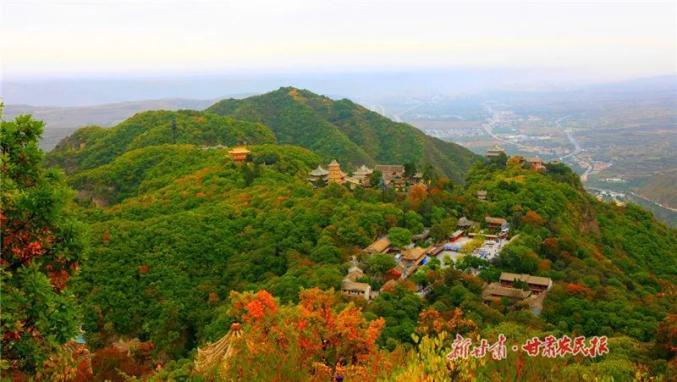
Pingliang Niujiaogou Yizhi.
-
Niujiaogou Cold Noodles (凉皮): A must-try dish when visiting the area, these cold noodles are known for their chewy texture and refreshing taste. Local vendor Yang Caihong has gained a reputation for her delicious variations, often serving up to 1,500 servings in a single day during peak tourist seasons.
-
Steamed Bread (罐罐蒸馍): This local specialty is a hit among visitors and is said to have been praised by historical figures for its unique qualities. Characterized by its thin, multi-layered skin and subtle sweetness, it can be enjoyed as a snack or even used for medicinal purposes.
-
Long Noodles (长面): Renowned for their length and the care taken in their preparation, these noodles feature a delicate yet rich broth that highlights the quality of local ingredients.
-
Fire Cake (火烧子): A unique traditional snack exclusive to the region, it’s crispy on the outside and soft inside, delivering a delightful taste without the greasy texture.
-
Pingliang Apples (苹果): Known as the “Hometown of Red Fuji Apples,” the local apple varieties are celebrated for their size, color, and exceptional flavor. Be sure to sample these fresh fruits, which are a result of the region’s ideal growing conditions.
Where to Stay
To make your stay comfortable, Pingliang offers a range of accommodation options that cater to different preferences and budgets:
-
Homestays and Rural Guesthouses: Experience authentic local hospitality by staying in one of the charming homestays in nearby villages such as Baijia Village or Wang Village. These accommodations often serve home-cooked meals and provide a direct connection to the local culture.
-
Farm Stays (农家乐): Embrace the rural lifestyle by choosing a farm stay, where you can enjoy meals made from fresh, locally sourced ingredients. Many of these establishments offer recreational activities such as fishing or fruit picking, providing a fun and immersive experience.
-
Hotels in Pingliang City: For those who prefer more conventional lodging, the city of Pingliang has a selection of hotels ranging from budget to mid-range options. These hotels often provide modern amenities, making them a convenient base for exploring the Niujiaogou site and surrounding attractions.
-
Boutique Hotels: Look for boutique hotels that offer unique themes and personalized services. These accommodations often reflect the local culture and provide a cozy atmosphere for guests.
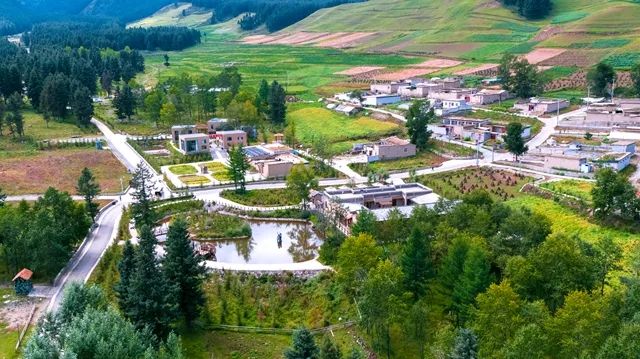
Pingliang Niujiaogou Yizhi.
In summary, your visit to Pingliang Niujiaogou Yizhi promises not only a journey through history but also a delightful culinary experience and comfortable stays that enrich your travel experience. Enjoy the flavors and warm hospitality that this beautiful region has to offer!
Frequently Asked Questions
Frequently Asked Questions about Pingliang Niujiaogou Yizhi (牛角沟遗址)
-
What is the Niujiaogou Yizhi?
The Niujiaogou Yizhi, or Niujiaogou Site, is an archaeological site located in Pingliang, Gansu Province, China. It is renowned for the discovery of ancient human skull fossils, dating back approximately 50,000 years, which are attributed to the prehistoric population known as “Jingchuan Man.” -
Why is the site significant?
The site holds great archaeological significance as it provides insights into early human life in the region. In 2013, it was designated a National Key Cultural Relic Protection Unit, emphasizing its importance in understanding human evolution and prehistoric cultures in China. -
What can visitors expect to see at the site?
Visitors to the Niujiaogou Yizhi can explore the exhibition hall that showcases artifacts and information related to the Jingchuan Man, as well as learn about the site’s archaeological findings. The area is also surrounded by picturesque landscapes, enhancing the overall experience. -
Is there an entrance fee to visit the site?
Yes, there is typically an entrance fee to access the Niujiaogou Yizhi and its exhibition hall. It’s advisable to check for current pricing and any special offers or discounts available for students, seniors, or groups. -
What are the visiting hours?
The visiting hours for the Niujiaogou Yizhi can vary by season. Generally, it is open from 9:00 AM to 5:00 PM. It is recommended to confirm the hours prior to your visit, especially during holidays or special events. -
Are there any guided tours available?
Yes, guided tours are often available at the site. These tours provide deeper insights into the archaeological findings and the historical context of the area. It is advisable to book a tour in advance, especially during peak tourist seasons. -
How can I get to Niujiaogou Yizhi?
The site is accessible by car or public transportation from Pingliang City. There are local buses and taxis that can take you to the site. If driving, be sure to follow local road signs, or consider using a navigation app for real-time directions. -
What other attractions are nearby?
In addition to the Niujiaogou Yizhi, visitors can explore other cultural and historical sites in the Pingliang area, such as the Jingchuan Great Buddha and various scenic spots that highlight the natural beauty of the region. Local villages also offer unique experiences related to traditional Chinese culture and cuisine.
Final Thoughts on Your Trip
In the heart of China’s Gansu Province, the Pingliang Niujiaogou Yizhi stands as a remarkable testament to human history and resilience. This archaeological site, home to the remains of the “Jingchuan Man,” invites visitors to step back in time—approximately 50,000 years—into the lives of our ancient ancestors. As you explore the lush landscapes of Jingchuan, you’ll not only witness the beauty of nature but also connect with the profound stories etched in the earth beneath your feet.
The ongoing efforts to enhance rural tourism in Pingliang have transformed the area into a vibrant destination, blending cultural heritage with modern attractions. From local delicacies that tantalize your taste buds to engaging experiences that immerse you in traditional crafts, each visit to Niujiaogou is enriched by the warmth and hospitality of the local community.
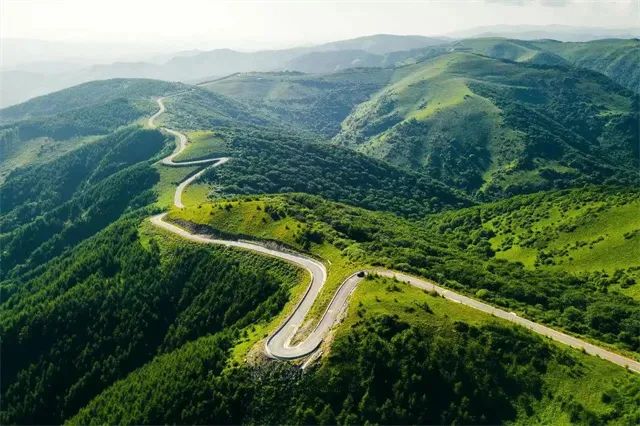
Pingliang Niujiaogou Yizhi.
As you contemplate your journey to this historic site, remember that every footprint is a part of a larger narrative—one that celebrates not only the past but also the thriving spirit of the present. Whether you’re an avid history buff, a nature lover, or someone seeking a tranquil escape, Niujiaogou offers a unique opportunity to discover, reflect, and rejuvenate. Embrace the call of adventure, and let the echoes of history inspire your next travel story.
